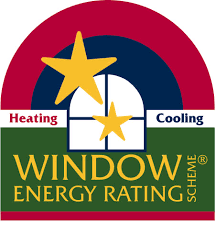Residential window tinting offers a multitude of benefits for homeowners looking to enhance their living space. From energy savings to increased privacy, there are various advantages to investing in window tinting for your home. Installing residential window tinting comes with several considerations. Let's take a look at what those are so that you make the right choice for your home.
Benefits of Residential Window Tinting
By reducing the amount of heat that enters your home through the windows, residential window tinting can help lower your energy bills. According to the University of Wollongong, Australia, most residential windows allow between 45% and 75% of UVA rays to pass through, contributing to temperature fluctuations inside the home.
With window tinting, you can regulate the temperature more effectively and reduce the strain on your heating and cooling systems, leading to significant energy savings over time. This not only benefits your wallet but also helps reduce your carbon footprint by decreasing your home's energy consumption.
Residential window tinting can also provide added privacy for homeowners, especially in areas with close proximity to neighbours or high foot traffic. The tinted film makes it difficult for outsiders to see inside your home while still allowing natural light to filter through.
Whether you want to enjoy a sense of seclusion in your living spaces or simply prevent prying eyes from peeking into your home, window tinting offers a simple yet effective solution. With different levels of tint darkness available, you can customise the level of privacy you desire for each room in your home.
Another key benefit of residential window tinting is the UV protection it provides for your home. Harmful UV rays from the sun can damage your furniture, flooring and other belongings over time, causing fading and deterioration.
By installing window tinting, you can block out a significant portion of these UV rays, extending the lifespan of your interior decor and furnishings. This protection not only saves you money on replacements but also preserves the aesthetic appeal of your home.
With UV-protective window film, you can enjoy a brighter, more vibrant home interior while safeguarding your investments from sun damage.
Costs of Residential Window Tinting
When considering residential window tinting, one of the primary concerns for homeowners is the initial cost of the installation. While the upfront investment may vary depending on the size and number of windows in your home, the long-term benefits typically outweigh the initial expense.
By factoring in the energy savings, increased home value and UV protection offered by window tinting, the upfront cost can be seen as a worthwhile investment in the comfort and sustainability of your home. Many homeowners find that the cost of window tinting pays for itself over time through reduced energy bills and maintenance expenses.
In addition to the immediate benefits of energy savings and increased comfort, residential window tinting can lead to long-term financial savings for homeowners. By reducing the amount of heat entering your home, window tinting helps to regulate indoor temperatures more efficiently, ultimately lowering your heating and cooling costs.
Furthermore, the UV protection provided by window tinting can prevent sun damage to your belongings, reducing the need for costly repairs or replacements. Over the years, these savings can add up significantly, making window tinting a smart investment for the future.
Investing in residential window tinting can also boost the overall value of your home, making it more attractive to potential buyers in the future. Homebuyers are increasingly looking for energy-efficient features and modern upgrades when shopping for a new property, and window tinting can set your home apart from the competition.
With improved energy efficiency, enhanced privacy and UV protection, window tinting adds both aesthetic appeal and practical benefits to your home, making it a more desirable investment for buyers. As a result, the installation of window tinting can lead to a higher resale value for your property.
When considering the long-term financial impact of residential window tinting, the added home value is a key factor to consider for homeowners looking to maximise their return on investment.
Types of Residential Window Tinting
Solar window film is a popular choice for residential window tinting, offering both energy efficiency and UV protection for homeowners. This type of tinted film is designed to reduce solar heat gain and block harmful UV rays, helping to maintain a comfortable indoor temperature and protect your furnishings.
With solar window film, you can enjoy natural light without the heat and glare, creating a more comfortable living environment while saving on energy costs. Additionally, the UV-blocking properties of solar film can prevent sun damage to your floors, furniture and artwork, preserving the beauty of your home interior.
Whether you live in a hot climate or simply want to improve the energy efficiency of your home, solar window film is an effective solution for enhancing comfort and sustainability.
For homeowners looking to add a touch of style and personality to their living spaces, decorative window film is a versatile option for residential window tinting. Available in a variety of patterns, colours and textures, decorative film can enhance the visual appeal of your windows while providing privacy and UV protection.
Whether you prefer a frosted, stained glass or geometric design, decorative window film can transform plain windows into focal points in your home. With the ability to customise the level of opacity and design, you can create a unique look that reflects your personal taste and complements your interior decor.
Decorative window film isn't only a practical solution for enhancing privacy and UV protection but also a creative way to update the look of your home without the need for expensive renovations.
For homeowners concerned about protecting their property and loved ones, safety and security window film offers peace of mind and added protection against intruders and accidents. This type of tinted film is designed to hold broken glass together in the event of a break-in, storm or impact, preventing shards from scattering and reducing the risk of injury.
With safety and security window film, you can strengthen the structural integrity of your windows and deter potential burglars, making your home more secure and resilient. Additionally, the UV-blocking properties of this film can protect your belongings from sun damage and extend the lifespan of your interior furnishings.
By investing in safety and security window film, homeowners can enhance the safety, security and durability of their homes while enjoying the benefits of privacy and UV protection.
Residential window tinting offers a wide range of benefits for homeowners seeking to enhance their living spaces with energy savings, increased privacy and UV protection. With various types of window film available, including solar, decorative and safety options, homeowners can customise their installation to suit their needs and preferences.
By understanding the cost, types, installation and regulations associated with residential window tinting, homeowners can make an informed decision that adds value, comfort and sustainability to their homes. Whether for energy efficiency, privacy or security, window tinting provides a practical and stylish solution for enhancing the beauty and functionality of any residential property.
With proper maintenance and care, residential window tinting can offer long-lasting benefits and savings for homeowners, making it a worthwhile investment in the comfort and protection of their homes. Reach out to Solarmaster to see what we can do about your window tinting today.





